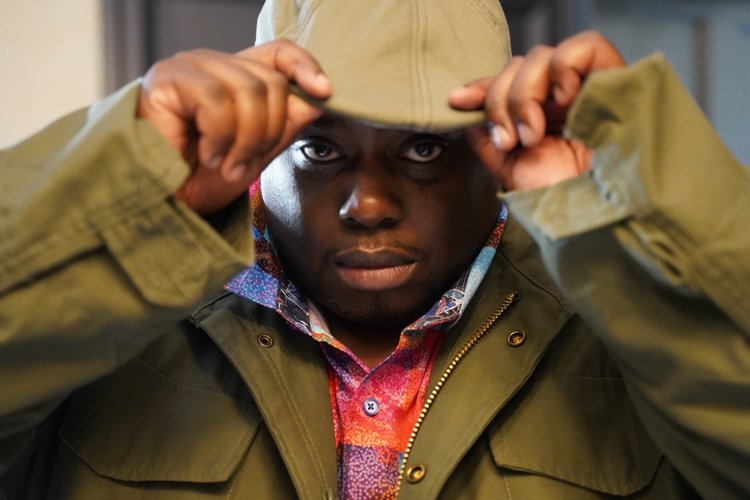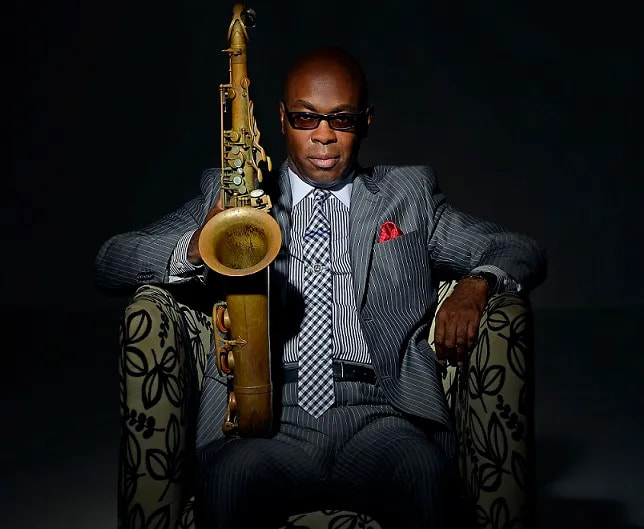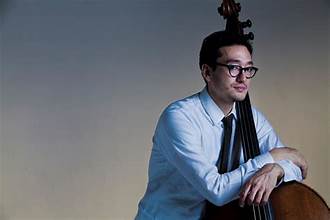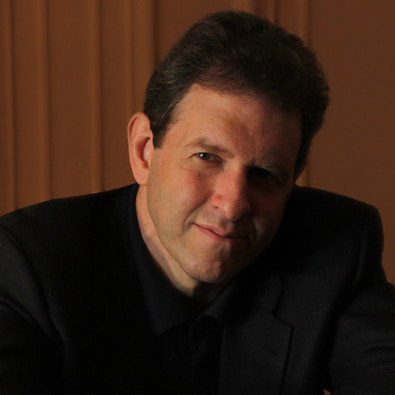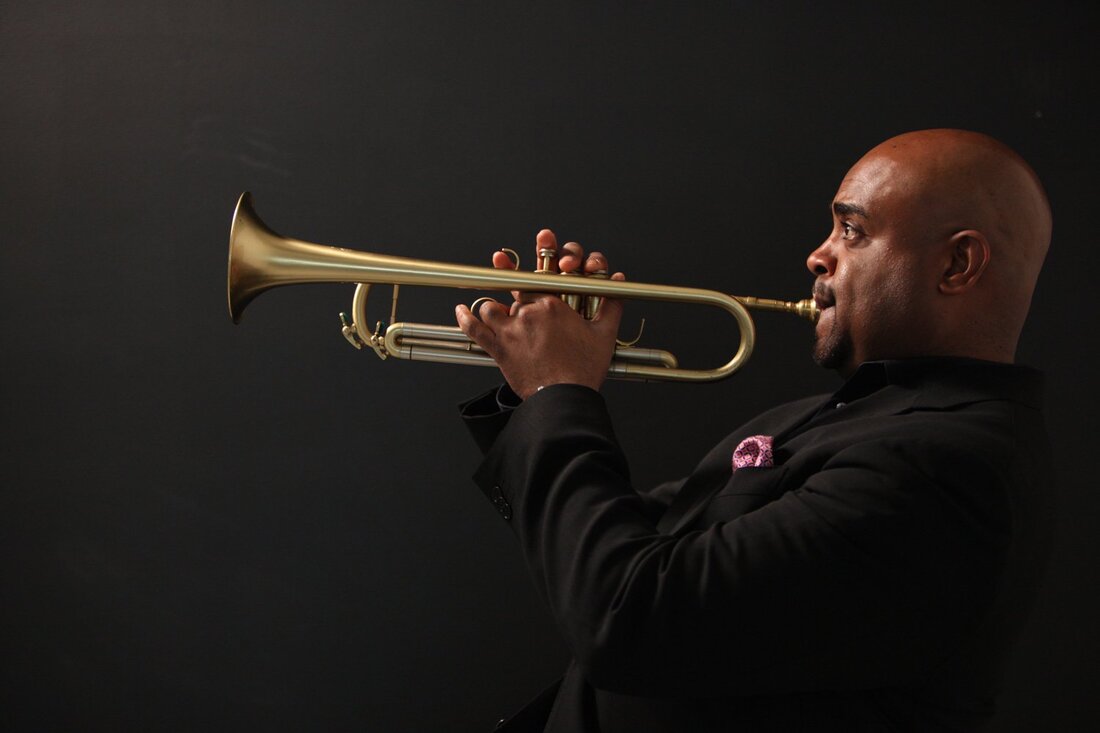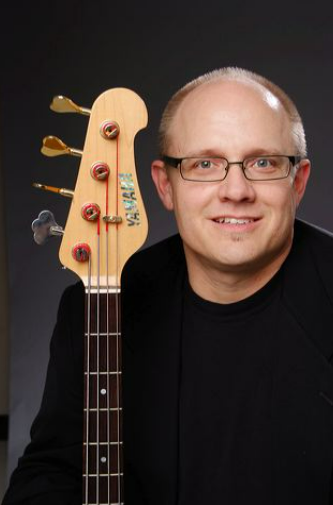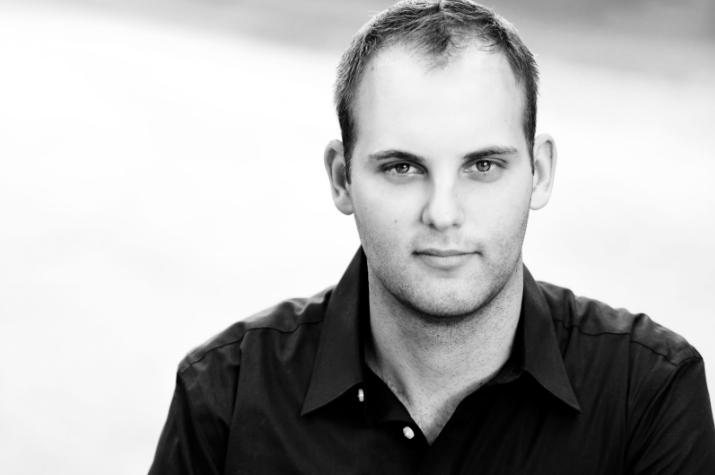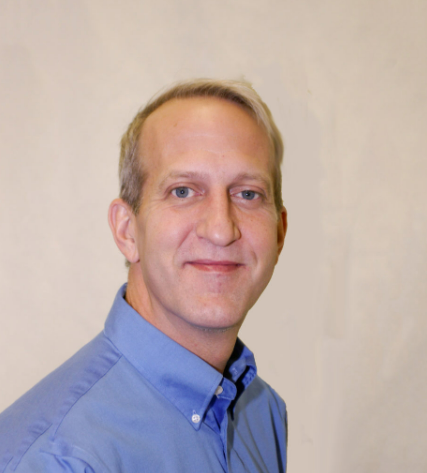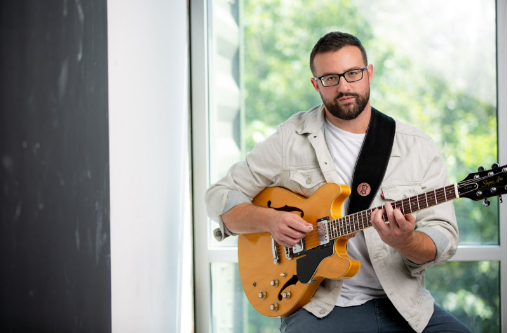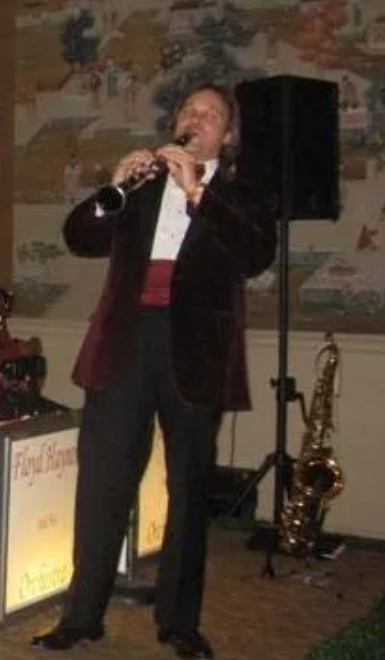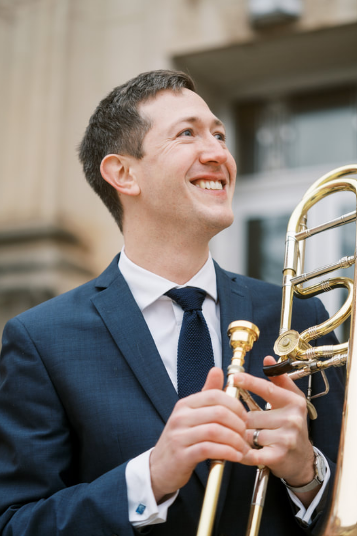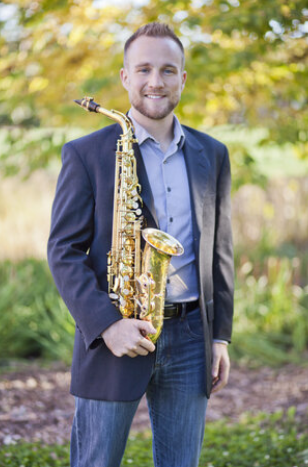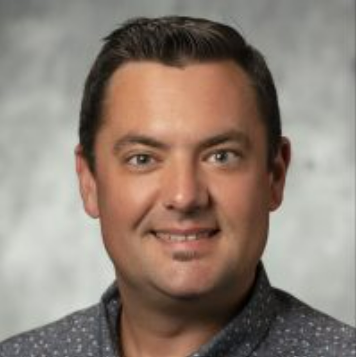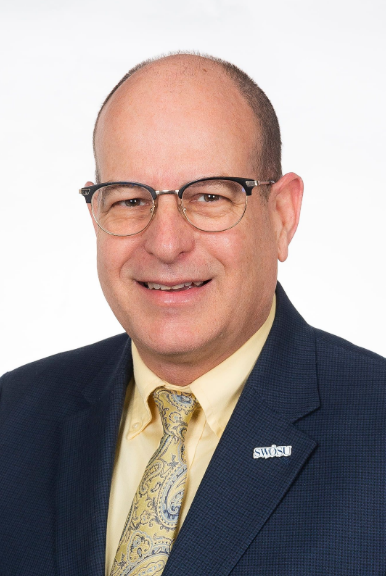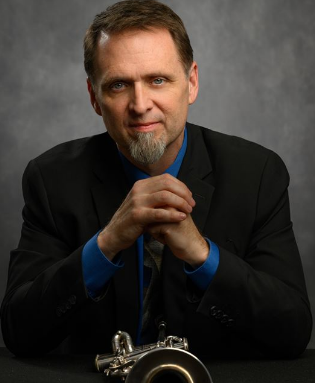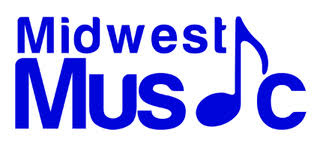0 Comments
Johnathan Blake, drums Johnathan Blake, one of the most accomplished drummers of his generation, has also proven himself a complete and endlessly versatile musician. Blake’s gift for composition and band leading reflects years of live and studio experience across the aesthetic spectrum. Heralded by NPR Music as “the ultimate modernist,” he has collaborated with Pharoah Sanders, Ravi Coltrane, Tom Harrell, Hans Glawischnig, Avishai Cohen, Donny McCaslin, Linda May Han Oh, Jaleel Shaw, Chris Potter, Maria Schneider, Alex Sipiagin, Kris Davis and countless other distinctive voices. DownBeat once wrote, “It’s a testament to Blake’s abilities that he makes his presence felt in any context.” A frequent presence on Blue Note records over the past several years, Blake has contributed his strong, limber pulse and airy precision to multiple leader releases from Blue Note artists including Dr. Lonnie Smith’s Breathe (2021), All in My Mind (2018) and Evolution (2016) and Kenny Barron’s Concentric Circles (2018), the latter whose trio Blake has been a vital member for nearly 15 years.
Born in Philadelphia in 1976, Blake is the son of renowned jazz violinist John Blake, Jr. — himself a stylistic chameleon and an important ongoing influence. After beginning on drums at age 10, Johnathan gained his first performing experience with the Lovett Hines Youth Ensemble, led by the renowned Philly jazz educator. It was during this period, at Hines’s urging, that Blake began to compose his own music. Later he worked with saxophonist Robert Landham in a youth jazz ensemble at Settlement Music School. Blake graduated from George Washington High School and went on to attend the highly respected jazz program at William Paterson University, where he studied with Rufus Reid, John Riley, Steve Wilson and Horace Arnold. At this time Blake also began working professionally with the Oliver Lake Big Band, Roy Hargrove and David Sanchez. In 2006 he was recognized with an ASCAP Young Jazz Composers Award, and in 2007 he earned his Masters from Rutgers University, focusing on composition. He studied with the likes of Ralph Bowen, Conrad Herwig and Stanley Cowell. Deeply aware of Philadelphia’s role as a historical nerve center of American music, Blake has immersed himself in the city’s storied legacy — not just jazz but also soul, R&B and hip-hop. In many ways he’s an heir to Philadelphia drum masters such as Philly Joe Jones, Bobby Durham, Mickey Roker and Edgar Bateman, not to mention younger mentors including Byron Landham, Leon Jordan and Ralph Peterson, Jr.. Tim Warfield, saxophone Born in York, Pennsylvania, saxophonist, recording artist and educator Tim Warfield’s professional career began in 1990, when he joined trumpeter and Sony recording artist, Marlon Jordan's Quintet. Some of his early musical accomplishments include becoming a 1991 Thelonious Monk International Jazz Saxophone Competition finalist, as well as involvement in many musical collaborations with such artists as Donald Byrd, Christian McBride, Nicholas Payton, Terell Stafford, Dizzy Gillespie, Shirley Scott, Jimmy Smith, Nicholas Payton, Stefon Harris, Isaac Hayes, and many others.
Now a veteran musician on nearly 80 recordings, with a total of 11 titles as a leader, the continuation of his musical journey includes arts advocacy and education, where Tim now serves as a board member and Artistic Director for the nonprofit organization, the Central Pennsylvania Friends of Jazz. He is also an appointed council member for the Pennsylvania Council on the Arts, as well as a member of the National Academy of Recording Arts and Sciences for 10 years. Tim currently serves as “Artist in Residence,” at Messiah College, and Assistant Professor and Coordinator of the Jazz Masters of Music Graduate Program at Temple University. Tim is currently a member of the Terell Stafford Quintet and the Jazz Orchestra of Philadelphia, His latest recording entitled Jazzland, features Terell Stafford, Pat Bianchi, Byron Landham and Daniel Sadownick. David Wong, bass Bassist David Wong was born and raised in New York City. In 2004, he graduated from the Juilliard School in classical music. He has studied with Orin O’Brien (New York Philharmonic), and Ron Carter. He is currently a member of Roy Haynes’ “Fountain of Youth” band, the Charles Mcpherson Quintet and The Vanguard Jazz Orchestra. He was also the last bass player in the Heath Brother’s Quartet led by Jimmy Heath and Albert “Tootie” Heath as well as Hank Jones' "Great Jazz Trio" and is featured on the piano master's last recording.
David is on faculty at Temple University, Purchase College, The New School and The City College of New York. Bruce Barth, piano Jazz pianist and composer Bruce Barth has been sharing his music with listeners the world over for more than thirty-five years. In addition to traveling widely performing his own music, he has also performed with revered jazz masters, and has collaborated with leading musicians of his own generation. Zan Stewart of the Newark Star-Ledger writes: "No one sounds quite like Barth. His solos are characterized by robust swing, his ability to tell a story, and by his rich, beguiling sound.”
Originally from Pasadena, California, Bruce arrived on the New York jazz scene in 1988, and soon started working in the bands of Stanley Turrentine and Terence Blanchard. Bruce has performed on over 135 recordings and movie soundtracks, including seventeen as a leader. He has brought his bands to major venues in the United States, Europe, and Japan; including New York, The Kennedy Center in Washington, DC, and major festivals in UK, Spain, Sweden, and Portugal. Bruce has been a member of the dynamic Terell Stafford Quartet for more than fifteen years, and has performed with such luminaries as Freddie Hubbard, Phil Woods, James Moody, Tony Bennett, and Steve Wilson. His new trio recording, “Dedication,” released in September 2022 on Origin Records, is a heartfelt tribute to his long-time drummer, the late Montez Coleman. Finally, Bruce is a dedicated teacher. He has been on the faculty of Temple University for more than twenty years. He also teaches at Columbia University, and has given master classes around the globe. Terell Stafford, trumpet The title of his most recent album, Between Two Worlds, perfectly encapsulates the boundary-crossing life and career of renowned trumpet player, composer, and educator Terell Stafford. Hailed as “one of the great players of our time” by the late piano icon McCoy Tyner, Stafford unites any number of dichotomies in his music: jazz and classical traditions, stunning virtuosity and profound emotion, stylistic eclecticism and an immediately identifiable voice.
At the same time he straddles worlds in a variety of ways in his career, juggling roles as a thriving musician and an acclaimed educator, or as a visionary bandleader and an in-demand sideman for some of the music’s most legendary performers. Perhaps most importantly, he strives to strike that always precarious balance between a professional touring musician and a loving husband and father to his family. Looking back over Stafford’s evolution, The New Yorker called him, “a distinguished bandleader and composer whose horn playing still startles with its verve and conviction.” Those facets can be heard vividly on more than 180 recordings over the last three decades. That includes a dozen albums under Stafford’s own name, from his 1995 debut Time To Let Go to Between Two Worlds in 2023. Along the way he’s paid homage to formative influences including Lee Morgan and Billy Strayhorn and celebrated the tightly-knit and incredibly gifted community of musicians with whom he’s surrounded himself both on the bandstand and in the halls of academia. In addition to the Terell Stafford Quintet, Stafford is the founder and Managing and Artistic Director of the Jazz Orchestra of Philadelphia (JOP), a big band composed of a generation-spanning roster of stellar Philly musicians, dedicated to celebrating the legacies of the many influential players and composers who emerged from the City of Brotherly Love. As the Director of Jazz Studies and Chair of Instrumental Studies at Philadelphia’s Temple University, Stafford has become a nurturing mentor to new generations of up-and-coming jazz musicians. He’s helped to guide the university and its students to impressive victories at Jazz at Lincoln Center’s Jack Rudin Jazz Championship, winning the inaugural event in 2020; and to grow the school’s Grammy-nominated record label, BCM&D, with recordings by the Temple University Jazz Band (including guest artists including Christian McBride, Joey DeFrancesco, Branford Marsalis, Jimmy Heath, Jon Faddis, and Dick Oatts) and all-star ensembles featuring Stafford and his fellow faculty members. Born in Miami and raised in Chicago, Stafford began studying classical trumpet at the age of 13. He first encountered jazz while earning his degree in music education at the University of Maryland – a practical compromise urged by his parents while he pursued a career as a classical musician. A fortuitous meeting with Wynton Marsalis led Stafford to study with Dr. William Fielder at Rutgers University, a vital mentorship that open the young trumpeter’s mind to explore a diverse range of genres and styles. Marsalis has remained a strong supporter, later inviting Stafford to perform with his Jazz at Lincoln Center Orchestra and offering guidance as Stafford developed his own Jazz Orchestra of Philadelphia. It was at that point that Stafford began to delve deeply into the history of jazz, finding foundational influences in bebop greats like Clifford Brown and Lee Morgan. During that time he also connected with saxophonist Tim Warfield, who would go on to become one of his closest friends and collaborators, and who remains a key member of the Terell Stafford Quintet today. The two frequented jam sessions along the east coast, finding a vibrant home at the famed Philadelphia club Ortlieb’s Jazzhaus, where the house band featured such luminaries as organist Shirley Scott, pianist Sid Simmons, and drummer Mickey Roker. Scott proved to be another guiding light for Stafford, enlisting him and Warfield to join her quintet as well as the house band for a revival of the TV game show You Bet Your Life. Both would make memorable early contributions to Scott’s final studio album, A Walkin’ Thing, in 1992. While at Rutgers, Stafford was also invited to join Bobby Watson’s Horizon, a group that the saxophonist formed in the image of his own proving ground, Art Blakey’s Jazz Messengers. Through that experience Stafford went on to record with Watson’s big band on the 1993 release Tailor Made, and to join McCoy Tyner’s Latin All-Star Band, helping to hone his skills alongside Latin jazz giants including trombonist Steve Turre, flutist Dave Valentin, and percussionist Jerry Gonzalez. Since that time Stafford has played an integral role in such legend-fronted groups as the McCoy Tyner Sextet, Benny Golson Sextet, Kenny Barron Quintet, Frank Wess Quintet, Jimmy Heath Quintet and Big Band, Jon Faddis Jazz Orchestra, Carnegie Hall Jazz Band and Dizzy Gillespie All-Star Alumni Band. He has been a longtime member of the Vanguard Jazz Orchestra, which garnered a Grammy Award in 2009 as Best Large Ensemble for their album Live at the Village Vanguard. Stafford has enjoyed fruitful tenures with the Grammy-nominated Clayton Brothers band and the Clayton-Hamilton Jazz Orchestra, as well as with drummer Matt Wilson’s eclectic group Arts and Crafts. He has performed with bands led by Cedar Walton, Sadao Watanabe, and Herbie Mann, while his most recent collaborations include the iconic saxophonist Charles McPherson and the Grammy-anointed Best New Artist, rising star singer Samara Joy. Stafford has also composed new music for the PRISM Saxophone Quartet. Following the release of Time To Let Go (Candid) in 1995, Stafford released Centripetal Force (Candid) in 1996, Fields of Gold (Nagel-Heyer) in 2000, New Beginnings (MAXJAZZ) in 2003, and the live Taking Chances (MAXJAZZ) in 2007, a catalog that includes such acclaimed musicians as Mulgrew Miller, Bill Cunliffe, Antonio Hart, Ron Blake, Stefon Harris, Victor Lewis, Edward Simon, Steve Wilson, Bruce Barth, Derrick Hodge, Dick Oatts, and, of course, Tim Warfield. In 2011 he released his gorgeous take on the music of Billy Strayhorn with This Side of Strayhorn (MAXJAZZ), and in 2015 earned an NAACP Image Award nomination for Brotherlee Love, his homage to the late, great Lee Morgan. He co-led a quintet with sax giant Dick Oatts for 2009’s Bridging the Gap, and united with Oatts and other Temple faculty and friends (including Warfield, Barth, Byron Landham, Justin Faulkner and Mike Boone) for Family Feeling in 2018 and Fly With the Wind in 2023 (both BCM&D). |
|||||||||||||||||||||||||
